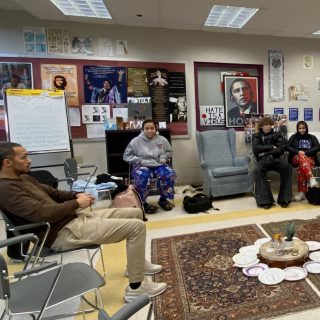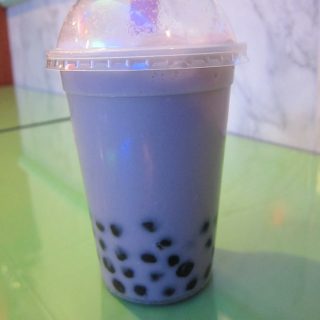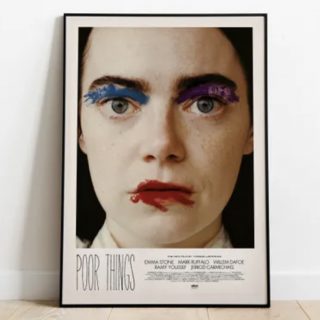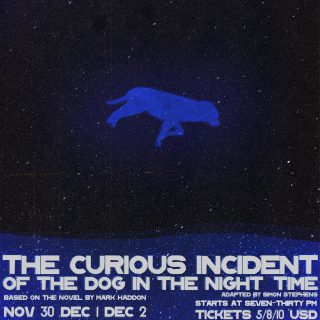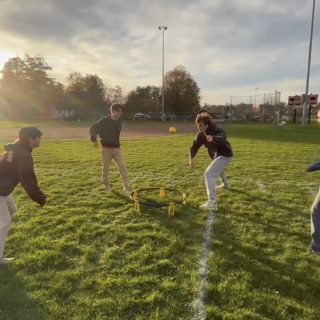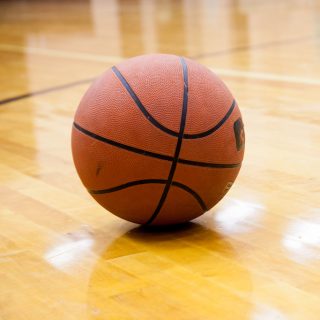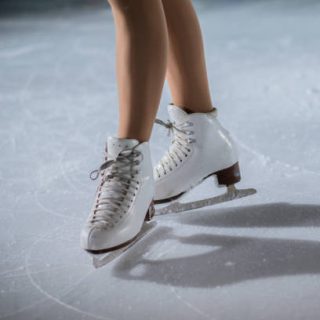Olympic diver and ARHS grad Michael Hixon gives exclusive interview

Annabel Culbreth-Loomis: How did you get into diving?
Michael Hixon: My mom was my coach and that’s sort of how everything started. My dad was the basketball coach at Amherst College and my mom was the diving coach at UMass. Every night they both had practices and I spent my entire childhood at Amherst College. When I was growing up, I’d either go play basketball or hang out around the pool. I started diving and fell in love with it. Once my mom took the job at UMass I started training more. When I was 13, I started training full-time in the summer and then when I was about 14 or 15, I started training every day, multiple times a day, and started to take it seriously. I decided that diving was the sport I wanted to pursue. It was what I wanted to go all-in on, and that’s what I did.
Annabel Culbreth-Loomis: When you started to go all-in on diving when you were about 14 or 15, what did your training consist of?
Michael Hixon: We were fighting for pool time all the time at UMass between the men’s and women’s swim team and rec swim, so we got pretty innovative in how we trained. I did a lot in the weight room, a lot of strength and conditioning and a ton of dry land. I want to say my sophomore or junior year, the dry land room was built in the basement (at UMass) and I probably spent three to four hours a day there just doing a ton of drills all the time. Every day I was in the water at least two hours and on Monday, Wednesday, and Friday I would be in the pool twice for two hours. I would get out of school and then go train at UMass, go home for a little bit, and then come back at night and train again.
I trained with the UMass divers quite a bit which was so fun. I developed a great relationship with them that still exists today and it was just all around an incredible environment to be in. There was a lot of competitive battle there which was great to have. A few of the college divers would stay over the summer and train with me which was awesome. You can imagine training alone with your mom probably isn’t the most fun thing in the world, so to have a little company behind the board was always fun.
Annabel Culbreth-Loomis: What made you want to go all the way to the Olympics?
Michael Hixon: I think the funny thing about my career, especially when I was younger, was that I never really thought about going to the Olympics. I just really loved diving. I just really wanted to dive. I loved doing it and I loved getting better. I wanted to win at AA championships; that was always something I dreamed of but I don’t know if I ever saw myself as good enough to make an Olympic team.
I went to my first Olympic trials when I was 18 and I was far out of making it, but at that time I started thinking about having a chance. Then I went to Texas during my freshman year of college and had a really strong year but decided to transfer to Indiana. I decided to transfer there because I thought it gave me the best chance to make an Olympic team. For me, it was me putting all my chips on the table and going all-in on this. Just saying, this is the place that can help me do it, this is where I want to be, and this is the dream I want to pursue. 2013 or 2014 was the first time where I thought I could make this happen if I just went all in and did everything I could and be the best that I could be. I thought in two or three years it would work out.
Annabel Culbreth-Loomis: I want to get really good at diving. I’m trying to figure out if I should go to a college where I can become a really good diver or if I should just pick the school that’s the best. Do you have any advice for me?
Michael Hixon: It’s different for every person and I think you have to sit down and think about what you want out of your experience at college and what you want to leave with. The biggest thing I learned in college was to be intentional with your time and your effort and to spend a lot of time thinking about what you want. I think where people start to get upset is if there’s an incongruence between what you want to achieve and what your behavior looks like. For me, I wasn’t as academically inclined as I was in favor of making my diving as good as it could be. My number one priority was to get as good as I could in diving and I was going to go wherever that was. I didn’t care how good the school was. That’s what I wanted to do, that’s what I was going to pursue, and it just so happened that I got to go to really good academic institutions and get the education I wanted as well. Indiana has a great business school and that’s what I wanted to do there. I got a degree in economic consulting so it ended up working out well. I cared a lot about my academics but when I was making that decision, diving was the reason I went there.
I think a lot of people will have a different vision for what they want and will try to tell you what they think is important. In my experience, the people who are the happiest are the ones who can find congruence between what they want out of the situation and what their actions look like. I think that’s good for your mental well-being, for your soul to know you’re doing everything you can be doing to achieve what you want. My advice is to spend a lot of time thinking about what you want and not what other people want for you. If you align your actions with that, I think that’s where you’ll be the happiest and that’s where you’ll get the best outcome for yourself.
Annabel Culbreth-Loomis: What’s your favorite diving category and all-time favorite dive?
Michael Hixon: My best category was probably inwards. I think that was true pretty much my entire career. But, there is no better feeling than hitting a reverse dive. If I could hit a reverse in the meet, that was the best.
Annabel Culbreth-Loomis: What type of reverse?
Michael Hixon: On 3 meter I did reverse 3.5 tuck. It took a long time to get that going. It definitely was one of my weaker dives for a lot of my career but by the end, it felt like it was pretty consistent and a dive I could rely on. On 1 meter I did reverse 2.5 tuck.
Annabel Culbreth-Loomis: When you were training for the Olympics, what kept you motivated to keep going on hard days?
Michael Hixon: I think what was key for me was that I sort of started to understand that motivation is cyclical; it comes and goes all the time. Sometimes you wake up and you feel great, you want to be there all the time and It’s awesome. Some days you’re sluggish, it’s tough, it’s harder, and maybe you don’t want to be there. Maybe you’re in a part of the season where it’s just kind of a grind and you don’t have any meets coming up anytime soon. I started understanding that motivation wasn’t the important part of it, it was discipline. Every single day I was going to show up and I was gonna bring my A game. Every single day I was going to show up with a level of intensity and a level of effort. That was the most that I could bring to get as good as I could get on that day.
Sometimes those days are not great. You don’t feel like you’re getting better every day and some days you have worse practices than others. But if you’re working through that, if you’re trying to get better on those days, those are the days you do get better. My answer in terms of motivation is to make goals that are unrealistic for yourself. Then when you try to achieve them it needs to be very realistic.
You have to be like that every single day and that’s when it stops being about motivation and is about discipline. You can’t wait, you have to be there every single day to make that happen. You see some people who have huge dreams, and then they don’t have the action or discipline behind it, and then you see some people who maybe are really hard workers, but they don’t dream big enough. I think you have to have a combination of both. You have to dream really big and then you have to go chase it.
My advice is to spend a lot of time thinking about what you want, and not what other people want for you. If you align your actions with that, I think that’s where you’ll be the happiest.
MICHAEL HIXON
Annabel Culbreth-Loomis: You competed in the 2016 Summer Olympics in Rio de Janeiro and the 2020 Summer Olympics in Tokyo and won the silver at both for men’s synchronized 3-meter springboard diving. How old were you and what was it like to be in the Olympics twice?
Michael Hixon: I was 22 for the first one and I was 27 for the second one. It was amazing, especially the first time. To go to the Olympics for the first time is one of the most incredible things ever. It’s something that I dreamed about for a while and something that I had wanted to achieve. I don’t know if I’ve ever been locked in for an extended period as I was during my first Olympics. My focus couldn’t be deterred.
It was really cool just to be in the village, to be around people from every corner of the world. The Olympic Village is one of those fascinating people-watching places of all time because the heights range from about four foot seven with the gymnasts to seven foot five guys on the basketball team and they’re walking next to each other. Every culture in the world is there, so it’s just such a cool place to be.
Annabel Culbreth-Loomis: How did you get into synchronized diving?
Michael Hixon: I was always a springboard diver. I never actually had access to a platform as you know, not a ton of platforms in Massachusetts. Synchro is interesting. It requires less practice with another person than people think. A lot of it is finding somebody with similar mechanics to you. You can always make the timing work but having a partner that can do the same dives as you at a high level consistently is key. So much of Synchro is hitting your individual dives. Training as an individual and making yourself as good as you can be, that’s such a huge part of it. Diving with somebody else and synching up and working on that stuff takes a bit of time and a bit of practice.
Another part is understanding some of the things that make synchro easier like pace and timing. We used to practice with a metronome. We would go on 76 beats per minute, that was the pace we were going to walk down the board. Even when I didn’t have a partner there, I could put a metronome on and that was the pace that I was walking on the board. You can do a lot of tricks and practice without your partner there, but going back to it, it is if you can do those dives that we were doing and at a high level consistently; that’s the secret to success. Getting it next to someone else, that’s kind of the easy part.
Annabel Culbreth-Loomis: Do you think it’s important to be the same height and size as your partner for synchronized diving?
Michael Hixon: I think it matters a little bit. There’s probably a range of what is acceptable but I don’t think it’s crucial. Springboard weight matters just because of how much you bend the board. From a physics perspective that is important. Height, probably less so. It’s not too crazy. I think people think you need to be twins to make synchro work and that’s just not the case.
Annabel Culbreth-Loomis: When you went to the Olympics, did you compete in any other events besides men’s synchronized 3 meter?
Michael Hixon: In my first Olympics, I competed in the individual three-meter and got 10th. I was diving really well at the prelim semi and got 4th there. I didn’t get the job done in the final, unfortunately. I wish I could have that one back. That’s at the top of the list of events that I’d like to have one more crack at, but that’s not really how the sport works or how anything works.
Annabel Culbreth-Loomis: How do you prepare yourself for a high-pressure competition? Do you have any rituals?
Michael Hixon: I root myself in preparation. The biggest thing for me is if I show up to a meet and I feel like I’ve done the work and I feel like I’ve outworked everybody I am diving against, I feel confident. That is important for me and then you show up and you have an edge and you feel good about that.
I think the other important thing is knowing how you respond emotionally. To me, the worst thing I could feel was nervous. I don’t know about you but when I’m on the board if I feel tentative or nervous, that’s not when I’m diving my best.
You decide who you want to be when you walk on the pool deck, and that’s what I would do. Before you walk on the pool deck, you take a second and you just decide like alright when I walk through those doors this is who I am. I’m Michael Hixon and I’m this version of Michael Hixon and that’s who I want to be. What happens after that is a sport. Sometimes you have good performances, sometimes you have bad performances. If your preparations are there and you put yourself in the right mental and emotional state to compete, well that’s all you can ask for. Sometimes you have great meets, sometimes you have bad meets, but you put yourself in the best position.
Annabel Culbreth-Loomis: Is the Paris 2024 Summer Olympics possible in your future plans?
Michael Hixon: Unfortunately, it’s not. I’m sitting here in an office building, I got a big boy job, unfortunately. I had to retire. I’m an investment banker and I live in New York now. Sadly, the last time I dove was July 29, 2021. That was the day I dove in Tokyo. Maybe I’ll pick it up again sometime soon but Paris is not something I’m pursuing. What’s been fun is watching people that I dove with or watching the young kids on Team USA come up. There are some people doing an unbelievable job on both the men’s and the women’s side. To watch and root them on has been fun. I definitely will be watching Paris for sure.
Annabel Culbreth-Loomis: I’m sure you would be a great diving coach someday. Would you ever want to coach?
Michael Hixon: Both my parents are coaches so it’s in my blood, that’s for sure. I always joke with my co-workers that I’m just waiting to become a diving coach, I’m just being an investment banker today. We’ll see. I do think I would like to coach at some point, I think that would be awesome. I think it’s an incredible profession. I think it’s great to work with young people who are trying to achieve their dreams.
Annabel Culbreth-Loomis: That would be cool. You should come back here to coach!
Michael Hixon: That would be awesome. I would love to see a little more diving in Amherst. There’s just not enough.
Annabel Culbreth-Loomis: What are your thoughts on the potential for increasing the popularity and accessibility of diving?
Michael Hixon: I think it’s a couple of things. You need more coaches and more facilities. That’s the bottom line. I think you need to make it more accessible. I think the biggest issue is accessibility. Typically it’s pretty expensive to dive and typically people are traveling pretty far to find a club. Even if you find one, you need a parent who can drive you there and back. Not everybody has that. I think finding ways to make it accessible to communities that don’t already have access to diving is huge. [That means more] people that are willing to help in a non-professional capacity. I look to coach someday but maybe not in a professional capacity.
Maybe not even part-time but just in my free time and not get paid for it, just to do it to help, like when dads and moms coach Little League baseball and soccer. The more we can get people involved who have had experience in diving, the better. I think getting out there in terms of online presence and stuff like that [is important]. Red Bull Cliff Diving is helping with trying to get more people involved, kind of like skateboarding. You’re way too young to know and I’m even a little bit too young to know but skateboarding and what the X Games did for that as an extreme sport, making it more marketable to people. I think focusing on something similar to get more people involved is cool.
Annabel Culbreth-Loomis: What are your non-diving hopes and dreams for your future?
Michael Hixon: I got married a couple of months ago so making my wife happy is at the top of that list. Starting a new career, I don’t know where it will lead but I’m pretty excited about it so far. I like where I work; I like the people I work with and what I’m doing. So I think just continuing down this path for now. I’m pretty content where I am and just taking life one day at a time. It’s been a pretty drastic change going from diving for 20-something years and it was the main and only focus of my life for a long time. So I’m enjoying my life right now. It’s been a bit different but we’ll see what the future holds.
Annabel Culbreth-Loomis: When did you know it was the right time to move on from diving?
Michael Hixon: I was always pretty set on retiring after Tokyo. Diving is one of those sports where you can totally make a living and then you can support yourself but at some point, you need to transition into something else you’re gonna live on. It’s not like the NBA or anything like that. I spent a lot of time thinking about career transitions and what I wanted to do. The longer you wait, the harder it is and so I thought after Tokyo that would be a really good opportunity and really good timing. Then COVID happened and pushed the Olympics back a year which was a bit complicated. A ton of people retired after 2021, not just in diving.
Typically by the time people get to that fourth year in the quad, they’re drained. They’re physically, mentally, and emotionally just kind of drained, and to add one more year on top of that with all the chaotic training that was going on was hard. We were just trying to find a pool we could train in. I was training in the middle of nowhere Indiana, in some community pool and the kid before me was running off the board in jean shorts. I would get up and try to dive and it was like, what are we doing? That whole year took a lot out of me. By the time Tokyo was over I was just happy with my career and pretty content. I felt great about everything and it seemed like the right time to move on. The jean shorts were a lot to deal with. Maybe that is the biggest point of determination in my life.
Annabel Culbreth-Loomis: Do you have any more advice you would give to aspiring divers?
Michael Hixon: This is something my mom told me from the time I was young. Think about what you want and then align your actions with that. It’s not only different for every person and your priorities will shift. That’s okay as long as you sort of have this north star and know what you want to do and align your actions. If you want to be the best, you have to go all out. You have to find a way to work with great coaches, find a way to be on great teams, and work as hard as you can. You can do so many things by yourself, like mental training or more conditioning. Find a way to work as hard as you can.

